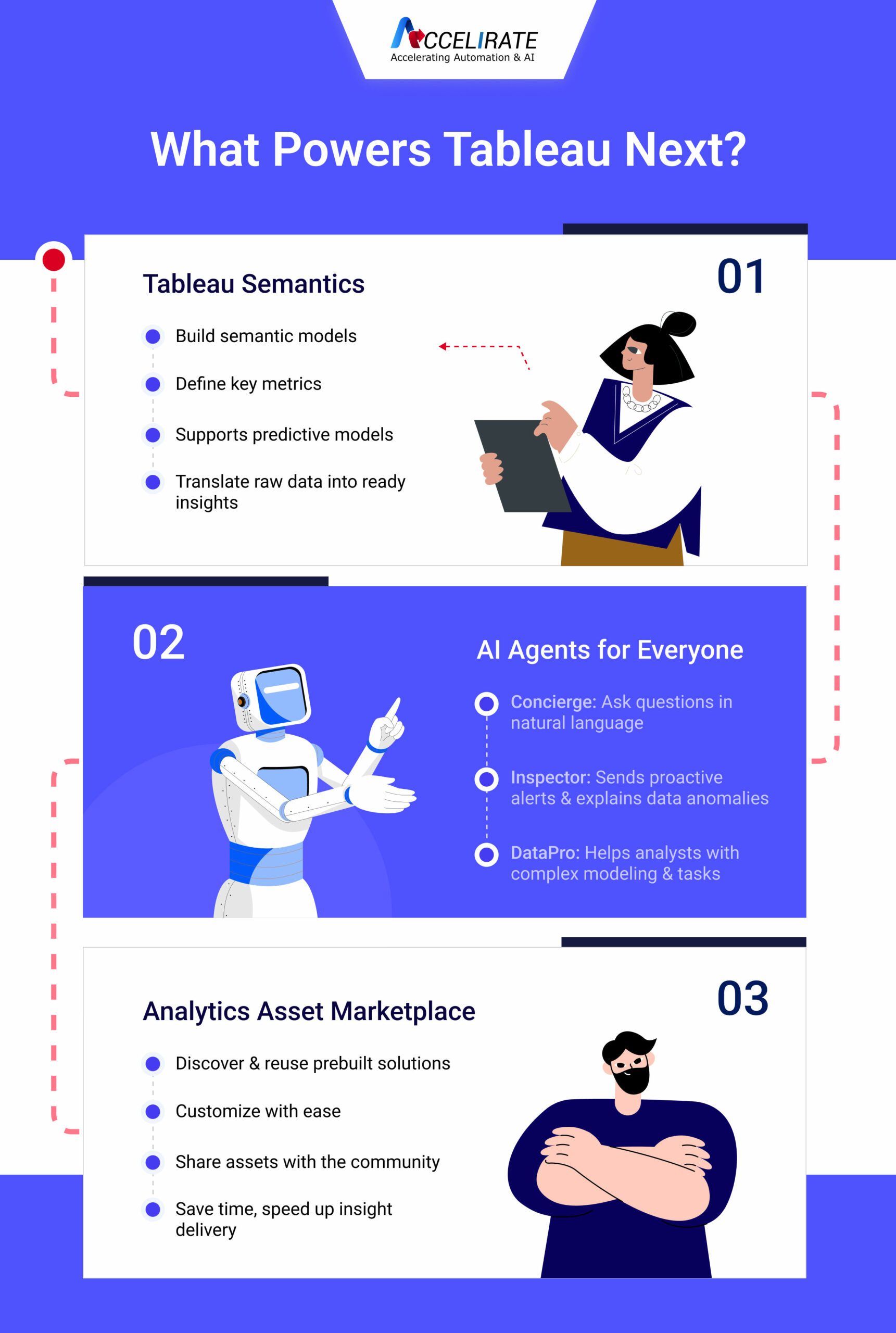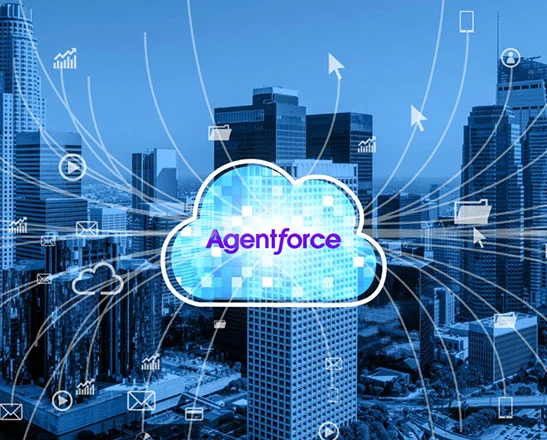Agentic analytics is the next big thing in AI. Tableau Conference 2025 emphasized Tableau’s commitment towards the evolution of Tableau and the integration of Agentic AI into the platform. Our goal in attending the conference was to get a clearer picture of Tableau’s direction: What are they building, how do current and upcoming products fit together, and what will this mean for analysts?
One message was made loud and clear: Tableau isn’t trying to replace analysts—it’s trying to empower them. This article will break down what Tableau Next is all about and share how one client is already leaning into this new era of analytics.
What is Tableau Next—and When Will You Need It?
Tableau Next is the next chapter in Agentic Analytics, delivering personalized, contextual, and actionable insights—seamlessly integrated into the tools and workflows people already use.

Built on Salesforce and powered by Data Cloud, Tableau Next promises to transform the way we build and consume analytics, without compromising the core Tableau experience that users love. The platform takes a layered approach, combining:
- Tableau Semantics
- AI Agents
- A Marketplace for Reusable Assets
- New Visual and Action-Driven Capabilities
What’s New in Tableau Next?
Let’s look at some of the key features of Tableau Next that were introduced during the conference to reduce repetitive work and elevate strategic decision-making for analysts.
Tableau Semantics
This is where data becomes usable. With Tableau Semantics, users can build semantic models, define key metrics and business goals, and create predictive models. Think of it as the bridge between raw data and business-ready insights.
Intelligent Agents: Concierge, Inspector, and DataPro
- Concierge helps business users ask natural language questions about their data. For example, in one demo, a user asked, “Has the email bounce rate always been this high?” The agent responded with contextual insights and a visual explanation of the trend.
- Inspector delivers proactive alerts and insights. If your revenue is off track, Inspector flags it and tells you why—before you even have to ask.
- DataPro assists analysts by helping build semantic models and complete complex data tasks more efficiently.
These agents aren’t here to replace analysts—they’re here to reduce the heavy lifting and enable self-service analytics across the organization.
The Marketplace
Tableau Next also features a marketplace for reusable analytics assets, enabling faster deployment and easier customization. This provides Tableau practices an opportunity to be rewarded for giving back to the community, while giving analysts time back by leveraging already built solutions.
So, When Should You Adopt Tableau Next?
The short answer: It depends on your organization’s goals and maturity.
Tableau Next will be generally available in June 2025. Current Tableau products aren’t going anywhere—Tableau made it clear in the keynote that they’re continuing to invest in their full product suite. Tableau Next is joining a unified portfolio, not replacing anything.
If your organization is ready to explore what's next, start by building a roadmap. Whether you're an early adopter or taking a more cautious approach, mapping your current needs to Tableau Next’s capabilities is the best way to ensure a smooth integration.
Client Story: How One Real Estate Leader is Going All-In on AI
While every organization is at a different point in their BI journey, one client stood out: A real estate leader who's going all-in on AI. For him, being an early adopter wasn’t optional—it was essential for gaining a competitive edge.
Together, we helped him map out his current state, align it with the capabilities of Tableau Next, and define a clear path forward. That’s what successful transformation looks like: understanding where you are and where you want to go—then using the right tools to get there.
Ready to Explore What’s Next?
If you're interested in building a roadmap for Tableau Next or understanding how these new tools fit into your business strategy, Accelirate is here to help. Let’s talk about how we can partner to meet your goals and stay ahead in this evolving data landscape.





